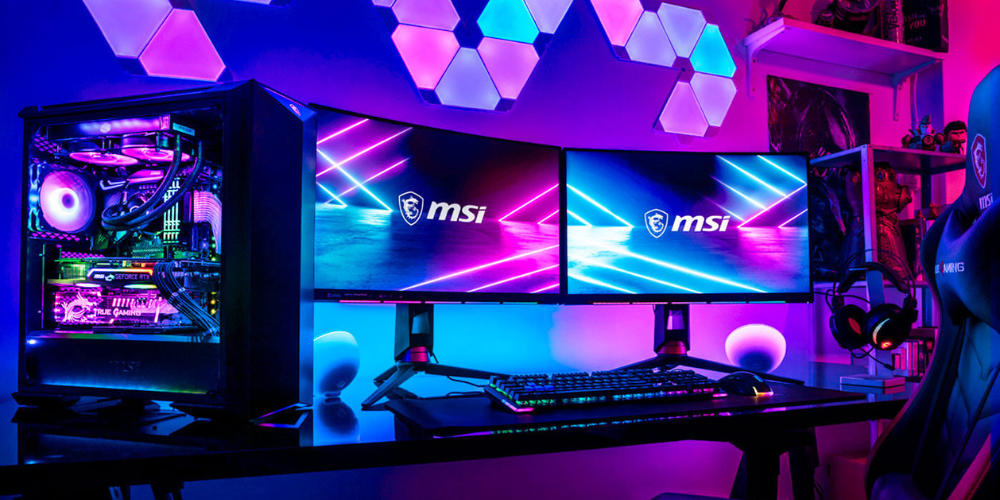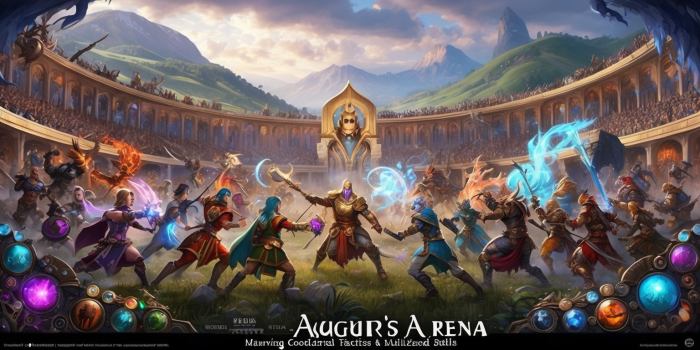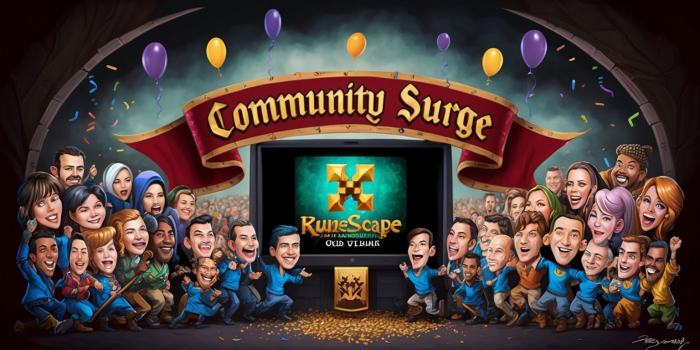 2024-02-15 13:15
2024-02-15 13:15 Immersive Technologies and the Dawn of a New Era in Gaming
The gaming industry is currently standing on the precipice of a technological revolution. As technological advancements surge forward rapidly, we're experiencing a significant transformation in our engagement with video games. Today's gaming industry is a far cry from its humble beginnings, and as we move further into the 21st century, it is set to become an even more immersive, realistic, and dynamic entity. This article explores the various technologies that promise to redefine our gaming experiences in the near future.
Virtual Reality (VR): A New Dimension to Gaming
While the notion of Virtual Reality (VR) has been around for some time, the gaming industry is poised for a transformative shift due to recent progress in VR technology. Until now, VR has largely been a solitary experience, restricting players within the confines of a virtual world. However, upcoming VR technologies aim to create shared experiences, enabling players to interact with each other in a virtual environment. The future of VR in gaming is about creating a fully immersive experience that blurs the line between the digital and physical worlds. This is being made possible by advancements in technologies such as haptic feedback, which allows players to feel physical sensations within a virtual space, and 360-degree video rendering, which provides a complete field of view, enveloping the player entirely within the game's environment.

Augmented Reality (AR): Blending Actual and Digital Environments
While VR takes players into completely digital realms, Augmented Reality (AR) brings digital elements into our physical world. AR superimposes digital images onto the real-world environment, creating a hybrid experience where the digital and the physical coexist. The introduction of AR into the gaming industry has already begun, with games like Pokémon Go demonstrating the potential of AR in creating engaging and interactive gaming experiences. As augmented reality (AR) technology advances, we anticipate an increase in games that effortlessly blend virtual features with our real-world surroundings, turning the space around us into an interactive gaming arena.
Artificial Intelligence (AI) and Machine Learning (ML): Making Games Smarter
Artificial Intelligence (AI) and Machine Learning (ML) are steadily making their way into the gaming sector, with expectations for their influence to surge dramatically in the upcoming years. These technologies are being used to create intelligent game characters that can learn from players' actions and adapt their behavior accordingly. This means that the Non-Player Characters (NPCs) in games will no longer follow predetermined paths or actions. Instead, they will absorb insights from the player's actions, adjust to their tactics, and perpetually advance to foster a more demanding and captivating gaming encounter. In addition, AI and ML can be employed in the game development workflow, assisting in the crafting of richer and more detailed gaming environments.

Cloud Gaming and 5G: Democratizing Access to High-End Games
While high-quality gaming experiences have traditionally required expensive hardware, the advent of cloud gaming and 5G technology promises to democratize access to high-end games. Cloud gaming enables the streaming of games directly from the cloud to a user's device, obviating the necessity for high-performance hardware. The introduction of 5G technology further supports this shift, providing the high-speed, low-latency connectivity required for cloud gaming. This means that players will be able to enjoy high-quality, lag-free gaming experiences on virtually any device, anywhere, and at any time.
Blockchain and Cryptocurrencies: Transforming In-Game Transactions
Blockchain and cryptocurrencies are set to bring about a major change in how in-game transactions are conducted. Blockchain technology enables the formation of digital assets that are decentralized, permitting players to possess and exchange them. This means that players can have true ownership of their in-game assets and can trade them freely, without any interference or control from the game developers or publishers. Cryptocurrencies, on the other hand, provide a secure, transparent, and efficient means of conducting in-game transactions. They eliminate the need for third-party intermediaries, reduce transaction costs, and provide a universal currency that can be used across different games. The future of the gaming industry is undoubtedly exciting, filled with technological advancements that promise to transform the way we play. As we stand on the brink of this new era, one thing is certain - the gaming experiences of tomorrow will be nothing like those of today.




Leave a comment
Your comment is awaiting moderation. We save your draft here
0 Comments